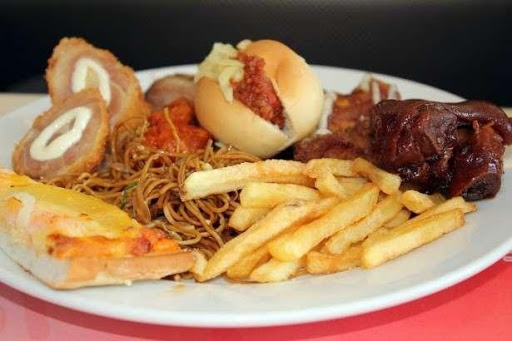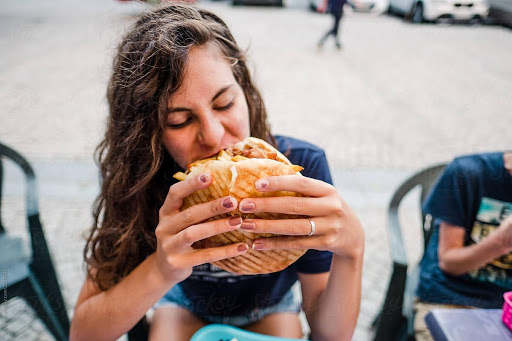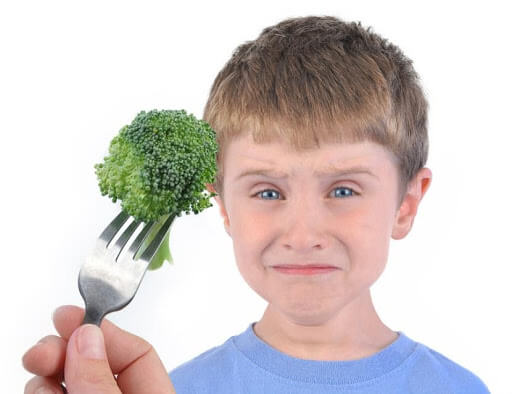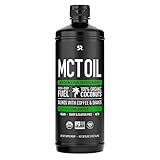Table of Contents
Starting on a keto diet should lead to many health benefits
but chiefly weight loss.
Almost every keto diet article you can find online will sound like a success rate of 100% ✅
We are sad ? we are the ones who carry this awful news
that not everyone who embarks on a keto diet will reap its benefits.
Correctly, keto diets can fail.
Yet, the whole aim of this article is not to tell you a piece of bad news. Precisely, we will inform you of why your keto diet fails and how you can avoid the significant pitfalls of keto diets.
If you want to know why you’re not losing weight in ketosis, or reaping other benefits of ketosis, read on.
Every problem comes because you’re either doing something wrong ❌ or not doing the right thing.
It is the same for why your keto diet fails. So, to analyze why your keto diet is not a success, we will look into each of these categories.
The things you do that makes your keto diets to fail.
Your protein intake is excess.
We know that among the foods to eat to get into ketosis, healthy protein intake is necessary. Even more, among the healthiest proteins to eat for ketosis, you’d find steaks, bacon, pork, burgers, sausages, and more.
While all of these proteins are suitable for keto diets, even so, keto-approved, overeating protein is bad for ketosis. ?
It is common for people to mistake keto diets for a high-protein diet instead of a high-fat diet. Hence, the bane of the error of consuming too much protein.
Mind you; protein is vital if you want to get into or stay in ketosis. As a rule of thumb, proteins should only make 15 to 20% of your calorie intake.
Studies indicate that excess protein intake, constituting more than 20% of calorie intake, will make an excessive amount of its amino acids turn into glucose via glucogenesis (GNG). At GNG, the body gets too much glucose and will ultimately get out of ketosis in no time.
It is not like the body will not go into GNG on a keto diet. Correctly, while in ketosis, ketones will fuel a whopping 70% of the brain’s ? energy needs. Whereas, GNG covers the remaining 30% for organs that do not metabolize ketones.
So, having too much glucose from GNG will mean that GNG fuels other brain activities, and ketones fuel lower activities than usual. Thus, lesser ketone production. Worse yet, getting out of ketosis since there is no more need to get ketones, as glucose levels are optimum.
Solution: Ensure that your daily protein intake is no more than 0.9 grams per pound of your body weight. So, if you weigh 165 pounds, you should not consume more than 145 grams of protein daily. Yet, if you are lean, you should stay within 0.55 to 0.77 grams of protein per pound of your body weight.
Your calorie intake is excess.

Keto diet diets usually involve cutting down on excess calories from carbs and replacing them with healthy fats and protein. More so, for persons who intend to build muscles on a keto diet and reduce body fat, you will have to increase your maintenance calorie intake by 15%. It may seem confusing, but upon a closer look, it will become clear.
Correctly, you need calories from protein and fat on a keto diet. More so, you will have to increase your maintenance calories to replenish the calories you burn during exercise on your keto diet.
Maintenance calories refer to the total amount of calories that you will typically consume and not increase weight. You can measure it by tracking your daily food intake three times in a week and recording your body weight.
If you do not increase in weight, the average calories you took for that week are your maintenance calories. Alternatively, you can use a calorie calculator for more precise results.
It is common for people to go beyond their maintenance calorie intake when on a keto diet, and this will lead to keto diet failure.
Going beyond your maintenance calorie happens because, at the beginning of your keto diet, you will soon begin to lose weight, which will reduce your maintenance calories. At this point, some people still eat the same amount of calories or more, which is now excess of what the body needs.
Thus, increased body weight and keto diet failure. 🙁
Solution: Although specific foods are keto-friendly, eating those foods more than your body needs will ultimately get you out of ketosis. So, calculate your maintenance calorie and do not go beyond it during your keto diet. As soon as you start to reduce weight, you can recalculate your maintenance calorie and ensure that you never go above it.
- YOU DESERVE A COOKIE: The Quest Chocolate Chip Protein Cookies provide you with a sweet, soft & chewy cookie with 15g protein, 4g net carbs and less than 1g of sugar
- UNWRAP COMPLETE PROTEINS: Quest Chocolate Chip Protein Cookies are made with complete, dairy-based proteins to provide you with 9 essential amino acids
- FIBER IS YOUR FRIEND: Quest Chocolate Chip Protein Cookies have 9g of fiber to provide your body with a more complete macro profile.State of Readiness: Ready to Eat
- SWEET WITHOUT ALL THE SUGAR: Enjoy the sweet taste of a chocolate chip cookie with less than 1g of sugar
- TREATS THAT TRAVEL WITH YOU: Take Quest Chocolate Chip Protein Cookies with you in your backpack, purse, car console, cup holder, gym bag or wherever your adventures take you
- Ryan, Suzanne (Author)
- English (Publication Language)
- 336 Pages - 12/12/2017 (Publication Date) - Victory Belt Publishing (Publisher)
You overeat keto-approved foods

Overeating keto-approved foods can lead to keto diet failure; .
it might sound absurd, but it is true.
Well, we do not mean that you opt for foods unsuitable for keto, we suggest you have to cut down on some of these approved foods you do not need.
There are many keto-approved products in the market- a few of them are keto snacks, keto gums, keto sweet substitutes, and more.
While these foods are not readily bad, you can easily exceed your daily calorie requirement without knowing. That’s because they all contain, although reasonably small amounts of calories, multiple intakes will make you exceed your limits.
Solution: We will not tell you to avoid keto snacks. We recognize that along with other signs of ketosis(link article 2), you will experience bad breath and need a keto gum. Still, always check the calorie content for each keto-approved snacks and subtract that from your maximum daily calorie limit.
You’re overeating fats
Overeating fats may seem like a direct contradiction to one reason we mentioned on the things you do that lead to keto failure, but it is not. Also, we are sure you know that 70% of your calories should be from fats.
Still, our point here is not necessarily that you’re exceeding your calorie intake. Again, you can be eating the wrong fats for ketosis.
Wrong fats for ketosis?
Yes, you read that right, some fats can get you out of ketosis.
Many people think the keto diet is all about eating lots of fats and reducing carbs. Well, while that is not wrong, it is also not accurate.
For instance, avocado oil, coconut oil, nuts, olive oil, cheese, hazelnut oil, and more are suitable for ketosis. That is because they contain small amounts of saturated fats and other fibers beneficial for ketosis.
On the other hand, cream, margarine, white chocolate, butter, trans-fat, and more have high amounts of saturated fats. Thus, unfit for ketosis.
The US dietary guidelines currently recommend that saturated fats should account for no more than 10% of your daily calories.
So, do you now see the problem?
On your keto diet, you need up to 70% of your calories from fats. Albeit, no more than 10% of these calories should be from saturated fats.
Solution: Unsaturated fats are more keto-friendly and healthier than saturated fats. So, try as much as possible to avoid them, especially in packaged products.
- BRAIN + BODY FUEL: MCT C8, C10, and C12 are body and brain boosting fatty acids that are extracted from organic coconut oil. Our MCT oil C8 Caprylic Acid, C10 Capric Acid, and C12 Lauric Acid is quickly digested, absorbed and converted into ketones more efficiently than traditional MCT coconut oil capsules. Our U.S.D.A. organic MCT coconut oil is easily digested to provide you with the fuel your brain and body needs!
- TRIPLE INGREDIENT: Carefully extracted using a patented process without the use of Hexane or other unwelcome solvents, our keto MCT oil provides three types of Caprylic Acid, known to be more efficient than traditional MCT oils. We believe in using only the best ingredients so you can have total peace of mind about the supplements you are taking. Feel the Sports Research difference!
- DRINK, EAT & BAKE: Say hello to your new daily ritual! Load up on C8, C10, and C12 by mixing our coconut oil MCT into your morning coffee, tea, or smoothie formulas. Our coconut MCT oil is an easy way to add these fatty acids to your food or drink and fuel your day. Combine our MCT Oil with our Collagen Peptides in your coffee for the perfect complement of protein & fat to your diet.
- ORGANIC, VEGAN, & KETO: Making our MCT oil organic, keto friendly, vegan, and non-GMO project verified was a top priority at Sports Research. Packaged in Canada and quality tested right here in the USA, our MCT coconut oil liquid was made with strong effectiveness and your satisfaction in mind. We don't settle so that you can put only the absolute best into your body.
- THE SPORTS RESEARCH DIFFERENCE: Created in 1980, Sports Research is a privately-owned business born from a passion for fitness, wellness, and healing. Our goal is to help people live their best lives through real, research-backed ingredients created for every body — inside and out. We're fully dedicated to sourcing the highest quality products from around the world, backed by third party testing. We all deserve the best in our quest for healthy living. Our mission is to give you just that.
Things you do not do that will lead to keto diet failure.
You are not eating enough fat.
Generally, keto diets involve eating a lot of fat for your body to burn as fuel instead of carbs. As a standard, 70% of your calories in a keto diet should be from fat.
So, if fats should account for such a considerable percentage of your diet, consuming way lesser than the stated standard will lead to keto diet failure.
There is a little twist to this whole point.
First, consuming healthy fats will increase ketone production and, ultimately, ketosis.
However, consuming high-fat foods will not get you into ketosis quicker than moderate-fat foods. More so, there are fats that are healthy for ketosis, while others are not.
Fats are essential for keto diets, not only because you need them for fuel. Precisely, fats allow you to feel full for more extended periods than your regular appetite.
That is because its digestion is slow, and it does not cause a spike in blood sugar levels but modulates it for a long time. Thus, it will function as an appetite suppressant to enable you to cope with your new calorie limits.
Not eating the appropriate amount of fat will see you have a lesser amount of ketone production and a higher appetite. Hence, leading to keto failure.
Solution: Ensure that fats account for up to 70% of your daily calorie consumption.
You do not eat enough vegetables.

If you look closely at every reason why your keto diet fails we mentioned, you will find out that there is more to ketosis than the common fat, protein, and carb intake.
Your keto diet’s success ✅ also hinges upon the consumption of nutrient-dense plant foods and leafy vegetables for micronutrients. That is just one of these factors, as you read on, you’d discover more.
All foods contain macronutrients- fat, protein, and carbs. However, vegetables, especially above-ground, leafy greens, are the best sources for micronutrients on keto.
That is because, on a strict keto diet, you need no more than 5% of your calories from carbs, and vegetables are generally low in carbs.
Vegetables with fewer than 5 grams of net carbs are very suitable for keto, and you can hardly overeat them. A few examples include spinach, lettuce, cucumber, kale, asparagus, cabbage, and more.
These veggies provide high amounts of nutrients like Vitamin C, healthy fibers, and other minerals. More so, they link to the production of antioxidants that protects the body against free radicals that can cause cell damage.
Still, it is worth mentioning that not all veggies are low in carb. Specifically, most below-ground vegetables like potatoes, radish, daikon, beetroot, parsnip, shallots, and more contain carbs ranging from7 to 17 grams per 100grams.
Above-ground veggies are all under 5 grams of carb per 100 grams. For example, the net carb for raw spinach is less than one gram per cup. Thus, the best fit for ketosis and will never lead to keto diet failure.
Solution: All vegetables contain macronutrients, but some are not suitable for ketosis because of their high-carb contents. Green vegetables tend to be lower in carbs than veggies with a lot of colour. Even more, below-ground veggies are better than above-ground veggies for ketosis. So, ensure you keep a healthy intake of vegetables to provide your body with sufficient minerals and vitamins. You can go far as to eat vegetables on every meal while on a keto diet. However, stick to green, leafy, above-ground vegetables.
- ZERO SUGAR: Sparkling Ice Coconut Pineapple is a fruity, flavorful sparkling water made with zero sugar; Each bottled water contains only 5 calories for guilt-free refreshment
- BETTER-FOR-YOU INGREDIENTS: Made with colors from natural sources, Sparkling Ice is made with better-for-you ingredients and bursting with real fruit flavor. Say no to soda and yes to the better-for-you carbonated beverage.
- VITAMINS & ANTIOXIDANTS: Sparkling Ice’s variety of fizzy, fruity flavors contain vitamins and antioxidants, including Vitamin A and Vitamin D to promote a balanced lifestyle
- LOW CALORIE BEVERAGE: With only 5 calories per serving, Sparkling Ice is a flavorful, low calorie beverage option with zero carbs so you can sip back and enjoy
- 12 BOTTLES: Each Sparkling Ice multi-pack offering includes 12 bottles of flavored sparkling water; Each bottle contains 1 serving equivalent to 17 fluid ounces; Please recycle
You do not drink enough water.
? Staying hydrated is essential no matter what diet you are following. However, for keto diets, staying hydrated is one determining factor of its overall success.
Dehydration is one of the most prominent side effects of keto diets. You must never overlook replenishing your water sources. Losing lots of water is peculiar to keto diets because carbs are responsible for holding water in your body. As such, when you reduce your carb intake, the body ejects stored fats and ultimately retaining less water.
You will experience a drastic water weight fluctuation in the first week of your keto diet. Although this is typical, the loss of water weight is from your body, consuming the water in fat cells. So, you see, keto diets require you to drink more water than ever.
How does water affect the overall success or failure of your keto diet?
First, water curbs and regulates appetite. Most of the time you feel hungry and crave sugar on keto, it is likely because you are dehydrated.
Also, ketones are acidic, and the body flushes some of the produced ketones via the mouth or urine instead of using them for fuel, so they do not accumulate in the body.
The kidney is responsible for filtering this excess ketone, and dehydration will inhibit the kidney from functioning efficiently. It will also increase the risk of other health risks like kidney stones.
Lastly and most importantly, water helps the body metabolize fat quickly. The process of fat breakdown in the body- beta-oxidation, requires water molecules more than carb would generally need. So, increasing your water intake will see this process speeds up. Likewise, less water will mar the efficiency of beta-oxidation. Thus, keto failure.
Solution: Well, for this problem, the answer is a no brainer. You should drink lots of water in a keto diet. However, do not overdo it; only drink when you are thirsty. The Institute of Medicine recommends adults to drink between 91 to 15 fluid ounces of water daily.
Yet, the individual activities and overall lifestyle can primarily affect the amount of water you should drink. For keto dieters, you’ll need to exceed this recommended water volume because of the fluid excretion peculiar to ketosis. As a rule of thumb, if your urine is light yellow or clear, you are drinking the right amount of water. Albeit for dark yellow urine, consider drinking more water.
You do not monitor your electrolytes
Keto diets, especially when trying to build weight on a keto and engage in exercise, will also lead to electrolyte depletion. Like with water, carbs are responsible for holding electrolytes like sodium in the body.
So, restricting carbs will lead to more depletion of your body electrolytes.
For your body to function well, each electrolyte must be within a healthy range. However, doing so can be very difficult on a keto diet. That is because drastically reducing carb intake will make your body process electrolytes differently.
Correctly, you will experience less insulin release, which will lead to more excretion of sodium and other electrolytes by the kidney.
For instance, when your body stores 1 gram of carb, it holds up to 4 grams of water and electrolytes. As soon as you deplete that 1 gram of carb, the 4 grams of water and electrolyte goes with it.
Electrolyte imbalance and dehydration combine into a formidable duo that leads to keto flu. Several electrolyte deficiencies are responsible for keto flu, but the major ones are sodium, potassium, and magnesium.
The general symptoms of electrolyte deficiency and dehydration are headaches, fatigue, muscle cramps, brain fog, irritability, and more. These symptoms may not take you out of ketosis, but will mainly discourage you from continuing your diet.
Solution: Although many experts suggest using electrolyte supplements, it should be your last resort other than your first call. You should consider electrolytes rich food first. If you are an athlete or you workout during keto diets, only then should you add supplements to your diet.
There is a misconception that sodium is just simple salt. Well, that is not true. So, to replenish sodium, you can opt for turkey breast, cheddar cheese, parmesan, salt, or feta cheese. Potassium-rich keto-approved foods include broccoli, cucumber, tuna, salmon, spinach, and more. Lastly, you can get magnesium from avocado, almond, cashew, kale, dark chocolate, and more.
FAQ
Why have I stopped losing weight on keto?
For a start, if you notice that you’re no longer losing weight on a keto, it does not necessarily mean that your keto diet is failing. If you’re in the first two weeks of keto diets, you will experience a rapid loss of water weight. However, do not expect to lose weight at that speed after two weeks. That is because your body is now burning real fats for fuel and will take more extended periods to do that.
Still, if you do not lose weight on a keto diet, you’re probably failing in one of the procedures mentioned above.
Will one cheat day make my keto diet fail?
We recommend you not start a keto diet if you intend to cheat along the line. Still, if you cheat from time to time, you will ultimately not reap all the benefits of ketosis. Worse yet, it will lead to keto diet failure.
Can I get my keto back if I cheated?
It is possible to get your keto back when you cheat. To do that, you’ll have to try intermittent fasting, add exogenous ketones, and maintain a strict keto diet.
How often should you take a break from keto diets?
There is no specific period for keto cycling. While some people go up to two weeks, then two days break. Others stay on keto for five days and take a break. It is all down to what works for you. Yet, you have to be careful because a two days break can lead to keto diet failure.
Why am i losing weight very slowly on keto?
The prominent reason your keto diet benefits, especially weight loss, may seem slow is that you are consuming too many carbs. So, limit your carb intake and frequently exercise so that your body burns down the stored glucose and starts to burn fat.
Wrapping up
There are many reasons why your keto diet fails. However, these reasons circle your carb, fat, and protein consumption, how much you replenish your electrolytes and water, and how much veggies you eat.
We are confident that you now know why your keto diet failed. However, you can’t pick one or two reasons from those provided and ignore some. All of them contribute significantly to the success or failure of your keto diet.
It is also worth noting that many people get discouraged and possibly end their diet when they get keto flu, usually at the inception of ketosis. Well, do note that keto flu is only your body responding to its new fuel source, or you’re dehydrated or lacking in some electrolyte. So, do not terminate your diet when you’ve not reaped its full benefits.
Meanwhile, next time you intend to go on a keto diet, ensure your follow the recommendations provided, and your keto diet will not fail.



